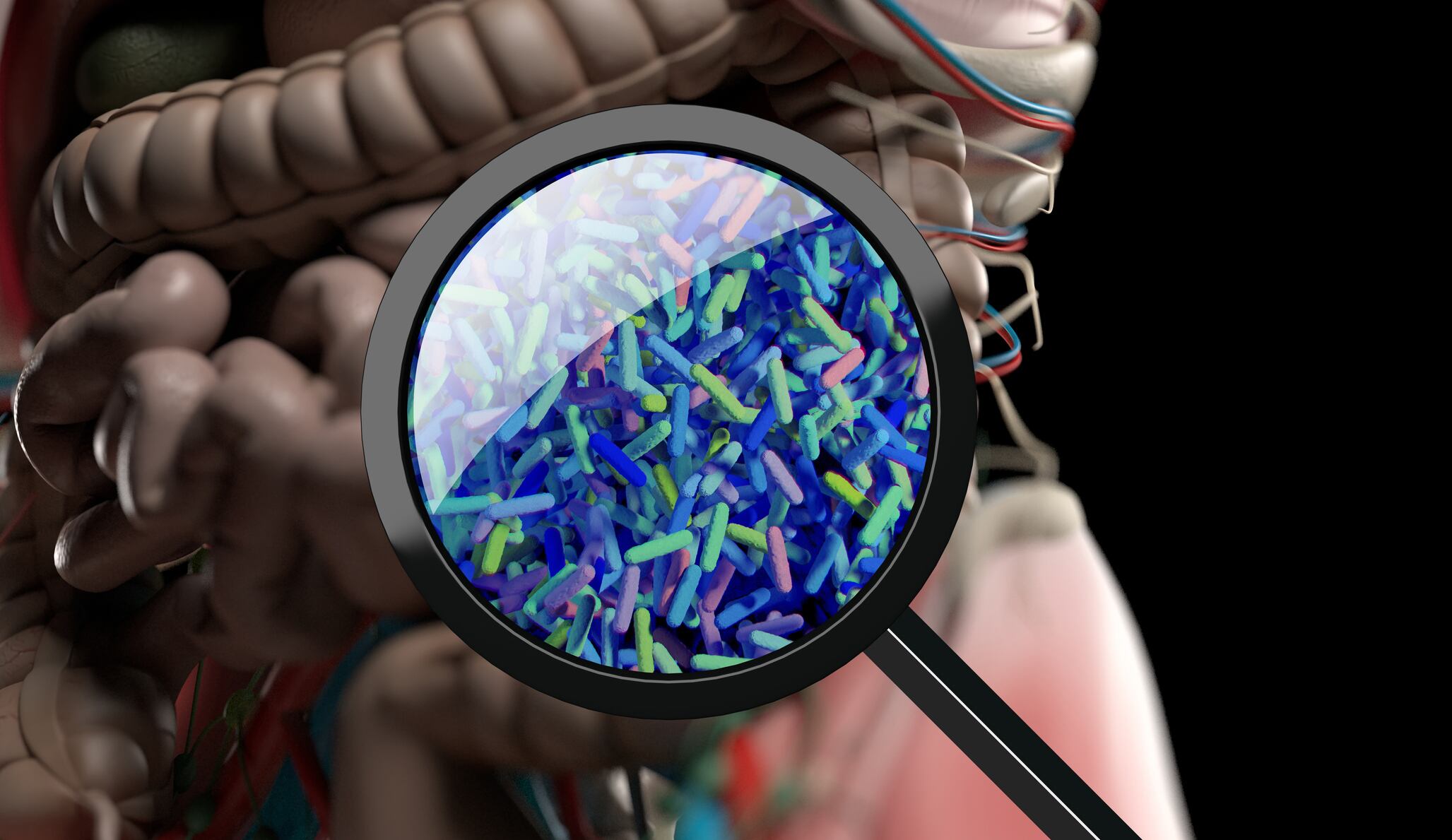Scientists from the Catholic University of Louvain report that Dysosmobacter welbionis J115T is found in up to 70% of the healthy population, and that lower abundance is correlated to higher BMI, fasting glucose levels, and higher HbA1c (glycated hemoglobin, a marker of long-term presence of excess glucose in the blood) in obese people.
With those observations in mind, the researchers then supplemented lab mice eating a high fat diet with live D. welbionis J115T and found that the bacteria partially protected those animals from metabolic disorders and inflammation.
“D. welbionis J115T is a newly isolated human bacterium, which is highly prevalent in the general population and inversely associated with BMI, fasting plasma glucose and HbA1c in overweight or obese subjects suffering from a metabolic syndrome,” wrote the researchers in the journal Gut.
“The daily administration of live D. welbionis J115T to mice for at least 6 weeks and up to 13 weeks blunted the high-fat diet induced metabolic disorders, by mechanisms independent of specific changes in the gut microbiota, but rather acting on both white and brown adipose tissue metabolism.”
Discovery
The link between the gut microbiota and obesity was first reported by Jeffrey Gordon and his group at Washington University in St. Louis, who found that microbial populations in the gut are different between obese and lean people, and that when the obese people lost weight their microflora reverted back to that observed in a lean person. This suggested that obesity has a microbial component (Nature, Vol. 444, pp. 1022-1023, 1027-1031).
A 2013 paper in Science (Vol. 341, Issue 6150), also led by Prof Gordon, found that transplanting gut bacteria from obese humans into germ-free mice leads to greater weight gain and fat accumulation than mice that were given bacteria from the guts of lean humans.
This has led many research groups to explore if probiotics may help manage weight. A probiotic is defined as a “live microorganisms which when administered in adequate amounts confer a health benefit on the host” – FAO/WHO.
However, as noted by the Louvain-based researchers, the vast majority of bacteria linked to obesity (positively or negatively) have never been cultured.
The team, led by Prof Patrice Cani, first reported the discovery of D. welbionis J115T in 2020 in a paper in the International Journal of Systematic and Evolutionary Microbiology, noting at the time that the bacterium is closely related to a species called Oscillospira guillermondii that has been consistently linked to leanness. However, O. guillermondii has not yet been cultured.
Study details
For the new study, the researchers tested for the presence and abundance of D. welbionis J115T in almost 12,000 people from the Human Microbiome Project, the American Gut Project, the Flemish Gut Flora Project, and Microbes4U.
This revealed that D. welbionis J115T was detected in between 63% and 70% of the healthy population, and that it was negatively associated with BMI, fasting blood sugar levels, and HbA1c in obese people with metabolic syndrome.
Prof Cani and his co-workers were able to culture D. welbionis J115T and supplement mice fed a high fat diet. The lab animals were supplemented with live bacteria, live but frozen bacteria, or dead (pasteurized) bacteria.
The results indicated that both live forms of the bacteria reduced body weight and fat mass gains in the mice, but pasteurization “completely abolished its beneficial effects”.
“We also found that the live bacterium was unable to permanently colonize the gastrointestinal tract of the mice,” wrote the researchers. “Indeed, after 72 hours of wash-out, the fecal content of D. welbionis J115T was below qPCR detection limit.
“Whether the beneficial effects of D. welbionis J115T are mediated by constitutive components or metabolites present both in the fresh and frozen preparation but not by metabolites produced in the gut warrants further investigation.
“Altogether, this study provides a proof of concept that the correlation observed in obese humans is fully supported by mouse experiments showing beneficial effects of D. welbionis J115T.”
“In time, this genus and others will form the basis for new probiotic strains and prebiotic targets”
Commenting independently on the research and its implications, Glenn Gibson, Professor of Food Microbiology and head of Food Microbial Sciences at the University of Reading in the UK, and a pioneer and world-renowned expert in prebiotics and probiotics, told NutraIngredients-USA: “This work comes from a very well-regarded scientific group.
“The research exploits new molecular approaches towards unravelling the microbiome diversity,” he added. “Inevitably, this will lead to the discovery of new taxa with beneficial properties. This is the case here, with the discovery of a new butyrate producer. In time, this genus and others will form the basis for new probiotic strains and prebiotic targets. This, of course, assumes that the safety and health promoting properties of the new microbes are confirmed.”
What’s next? “An incredible scientific opportunity”
Those additional studies are already being planned. Prof Cani told NutraIngredients-USA: “The project will continue at the level of the research in the lab for the basic science and the investigation of other paradigm/diseases (i.e. nutritional interventions, intestinal inflammation, colonic cancer, and other cancers/metastasis). This is an incredible scientific opportunity for us to pursue our work on this fascinating bacterium.
“The WELBIO institute (who has partially financed this project, and the bacteria has now its name: welbionis) is also following the valorization of the project at the industrial level. Meaning that the scale-up is fully part of the project and I really want to progress in that way. Interestingly, the culture medium used is already a medium compatible for human use. We have learned from our past experience with Akkermansia.
“The IP on the use of this novel bacterium is currently owned by UCLouvain (my university) and we are looking for potential licensing, co-development or any potential interesting collaboration that will help us to move from the mouse to human.”
Prof Cani added that it is too early to tell when human intervention studies with D. welbionis J115T will be performed, “but I am of course strongly moving in that direction”.
“We need to secure some funds to perform the different studies,” added Prof Cani. “But the process is similar to the one done with Akkermansia, first some strong toxicological studies, and hopefully a first administration in human volunteers in the coming couple of years.”
UCLouvain has produced a YouTube video explaining the work:
Source: Gut
Published online ahead of print, June 8, 2021. doi: 10.1136/gutjnl-2020-32377
“Dysosmobacter welbionis is a newly isolated human commensal bacterium preventing diet-induced obesity and metabolic disorders in mice”
Authors: T. Le Roy et al.




